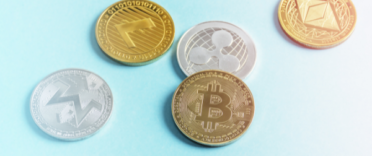 If you've heard about cryptocurrencies, you've probably heard about cryptocurrency wallets too. To buy, sell or even just store your cryptocurrency, you will need to have a digital wallet. There are a range of different online platforms that offer a secure wallet, so it is important to understand the key details and make an informed choice about where to hold your currency. In this article, we explain everything you need to know about cryptocurrency wallets and point you towards the kind that would work best for your needs.
If you've heard about cryptocurrencies, you've probably heard about cryptocurrency wallets too. To buy, sell or even just store your cryptocurrency, you will need to have a digital wallet. There are a range of different online platforms that offer a secure wallet, so it is important to understand the key details and make an informed choice about where to hold your currency. In this article, we explain everything you need to know about cryptocurrency wallets and point you towards the kind that would work best for your needs.
What is a cryptocurrency wallet?
While it can helpful to think of a cryptocurrency wallet as a digital version of an actual, physical wallet in which you store your coins, that analogy is actually rather misleading. Crypto wallets are a little bit more complex than that. Your digital money (bitcoin, for example) is not technically stored in your crypto wallet. Rather, a crypto wallet is where you keep your public key, which acts like an email address or username, and your private key, which you can think of as a password, which together enable you to interact with your digital money on the blockchain. Your purchased coins actually reside on the blockchain at all times, and your wallet is where you store the keys which you use to verify your ownership, so that you can then access and make transactions with them.
Crypto wallets are extremely important if you own cryptocurrency. Without your keys, you cannot verify your identity to access your assets, so it is crucial to keep your wallet safe. If you lost your keys, for example, you would not be able to prove the legitimacy of your ownership, so you would not be able to access your cryptocurrency – rendering your holdings worthless. Choosing a crypto wallet is, therefore, a decision that should take some time and research. There are two different types of wallet, each one having its own distinct advantages, and a vast market from which to buy from. It is not unusual for a crypto investor to have more than one wallet to suit their needs.
What is a 'hot' cryptocurrency wallet?
A 'hot' crypto wallet is one that is connected to the internet. They are the most popular type of wallet because they tend to be easy to set up and convenient to access. Hot wallets can be used from any device with internet access, such as a mobile phone or a laptop, and are usually the wallet of choice for investors that want to make frequent, easy transactions with their crypto on a daily basis.
Despite the appeal of a hot wallet's efficiency, there is a downside: security. In theory, because a hot wallet means that your private key is being stored on a device connected to the internet, it could be vulnerable to cybercrime such as identity theft. This is why it's usually advised that investors avoid storing the keys to large amounts of cryptocurrency in a hot wallet, just in case their security is compromised and they lose access to their funds.
There are a number of hot wallet options on the market. Desktop wallets enable users to manage their cryptocurrency from a laptop or computer – some popular examples including Electrum and Wasabi – but there are also mobile app versions, such as Mycelium or Exodus, for those that want quick access to their crypto portfolio on the go. There are hybrid options too, for those that want both desktop and mobile access, with wallets from Blockchain or Blockstream Green.
Pros and cons of hot cryptocurrency wallets
| Hot crypto wallet pros | Hot crypto wallet cons |
| Easy to use, can access from any linked device | Potential security downfalls due to internet access |
| Wide variety of options to choose from | Not suitable for storing keys to large amounts of cryptocurrency |
| Usually have access to a customer support network for queries | If your device is compromised and you have no 'cold' backup, you could lose access to your keys |
What is a 'cold' cryptocurrency wallet?
A 'cold' crypto wallet is either a piece of hardware that is not connected to the internet, or just paper. This is a much less popular storage choice, but investors should still consider a cold wallet if they want to maximise their assets' security. A hardware wallet acts similarly to a USB stick, whereas a paper wallet is simply a piece of paper detailing an investor's keys. Both are suitable options for those with significant amounts of cryptocurrency because they offer the most security. A hardware wallet is only briefly connected to the internet when it is connected to a device during the process of a transaction – such as when using your cryptocurrency to purchase a product online – and is taken offline once that transaction is complete. A paper wallet is theoretically the safest of all, with no risk of being manipulated online.
The downside to cold crypto wallets is that they tend to be impractical for those seeking to access their digital assets on a regular basis. Using a cold wallet to transfer cryptocurrency involves either connecting the hardware to a device with built-in cold wallet-compatible software to verify your keys (such as a QR code reader), or manually uploading your keys directly from your paper wallet onto the crypto exchange platform you are using. This can make cold wallets quite cumbersome and time-consuming, and are therefore typically only used for the keys to large amounts of cryptocurrency that is intended to be stored securely for a long period of time.
There are a range of cold hardware wallets to choose from, such as the Trezor Model T or the Ledger Nano X, which are small USB-like devices designed for easy use and maximum security. Alternatively, you can opt to simply print out your public and private keys (usually in the form of QR codes so that they can be scanned onto your computer or mobile phone for transactions) on a piece of paper and then store it somewhere safe in your own home. However, note that if you misplace either type of cold wallet, then you will lose access to your digital assets for good.
Pros and cons of cold cryptocurrency wallets
| Cold crypto wallet pros | Cold crypto wallet cons |
| Extremely secure, theoretically immune to cybercrime | Cumbersome and time-consuming to use |
| Good place to store keys to large amounts of cryptocurrency | Can be expensive to purchase upfront |
| Ideal for long-term storage while value appreciates | Requires some technical know-how to use for transactions |
Where can I buy a cryptocurrency wallet?
Where you go to buy your cryptocurrency wallet depends on which kind you intend to purchase. If you're looking to buy a hot wallet, then you have a number of options. Lots of cryptocurrency exchange platforms, such as Coinbase, offer their own integrated wallets for you to store your keys on their system. Alternatively, you can install hot wallet software from a range of different providers, including Electrum or Blockchain, so that you can store your keys on your chosen device as opposed to on an online server.
If you're opting for a cold wallet instead, you can either purchase a hardware wallet from a company such as Trezor and have your physical wallet sent to you direct from the manufacturer, or you can simply note down your public and private keys when you make your first cryptocurrency purchase and keep them securely on a piece of paper. Just remember to keep both kinds of cold wallet safe because your keys cannot be recovered if your wallet is lost or damaged.
More on crypto
Looking for more information on cryptocurrency? Check out the following articles:



